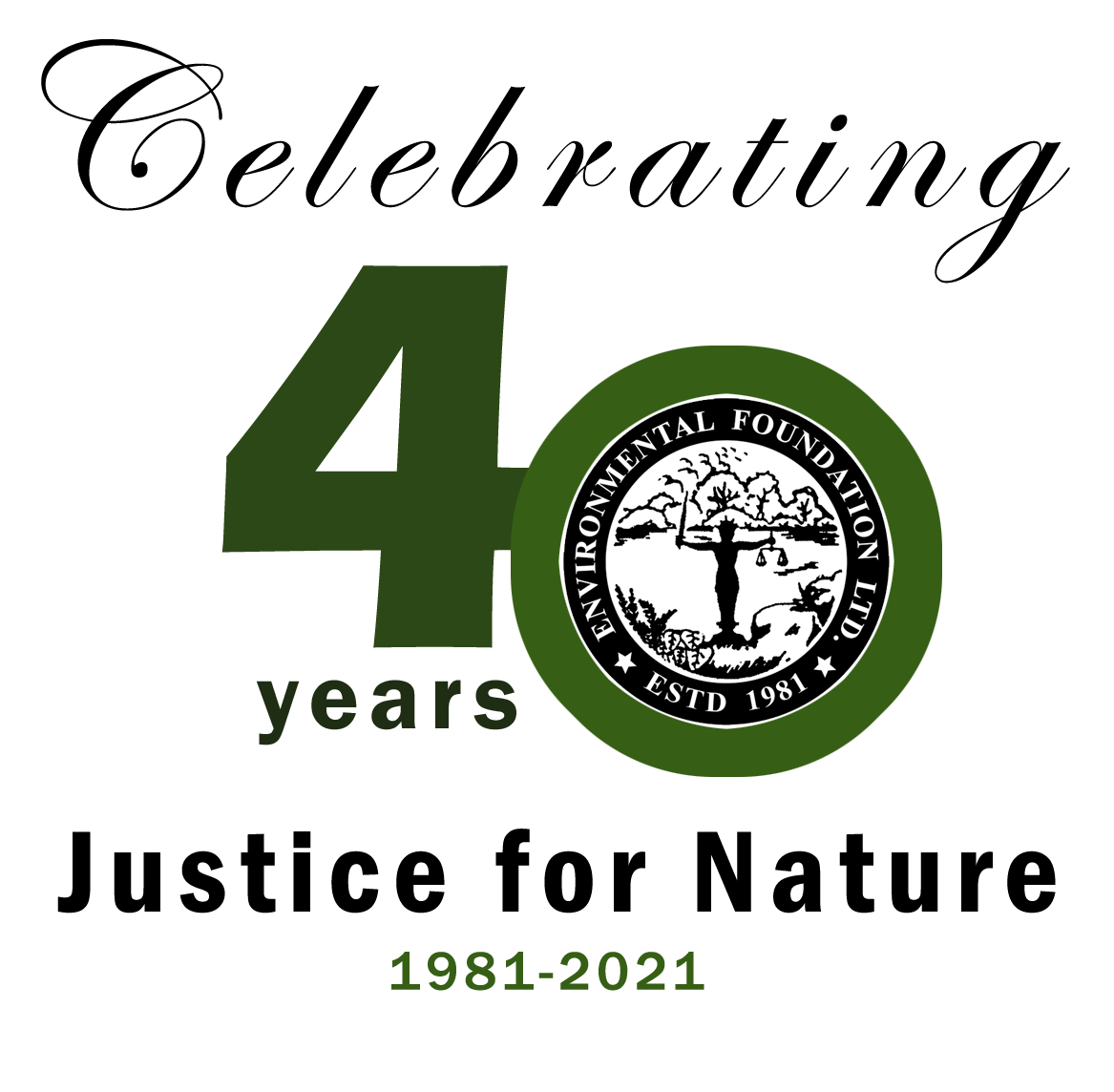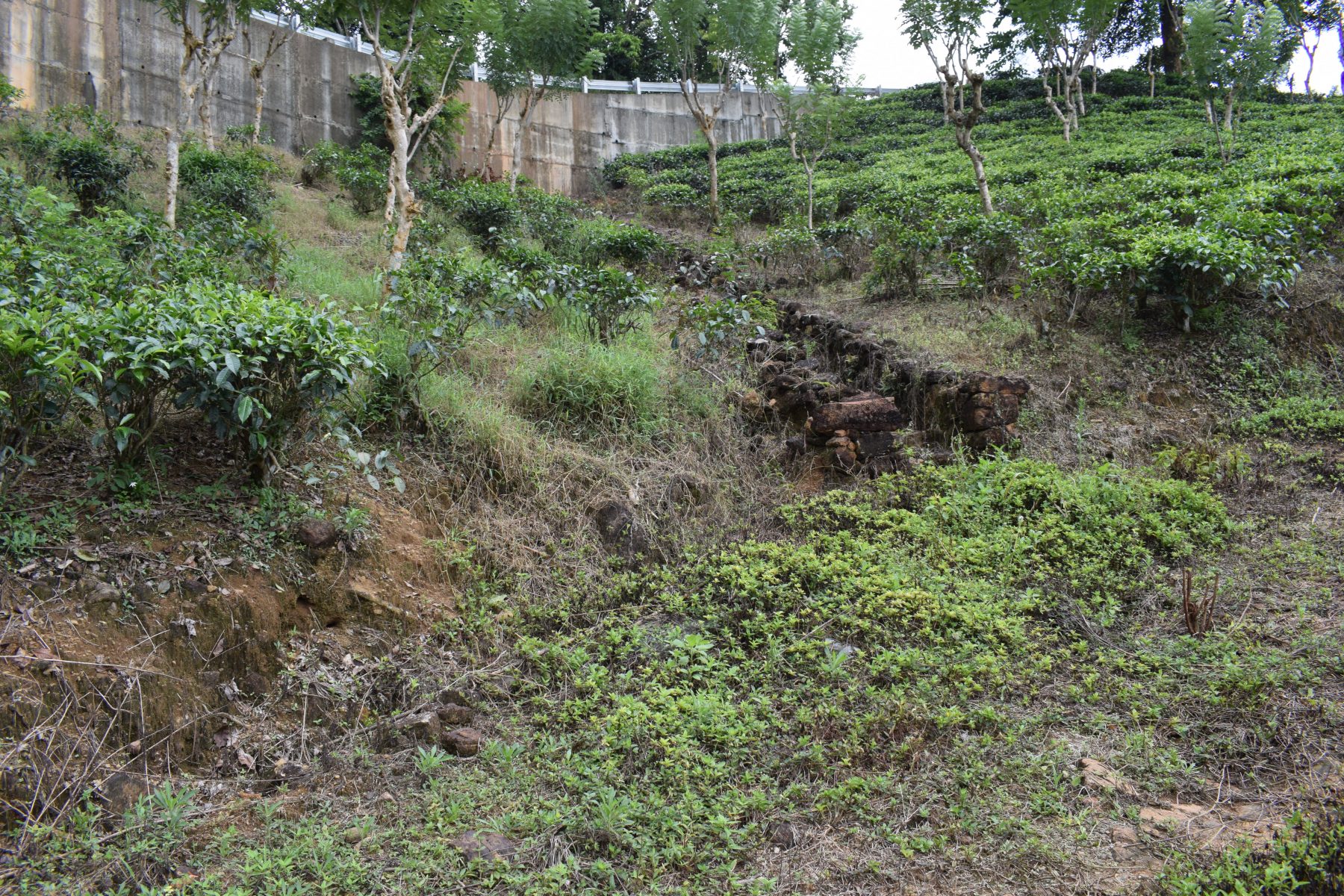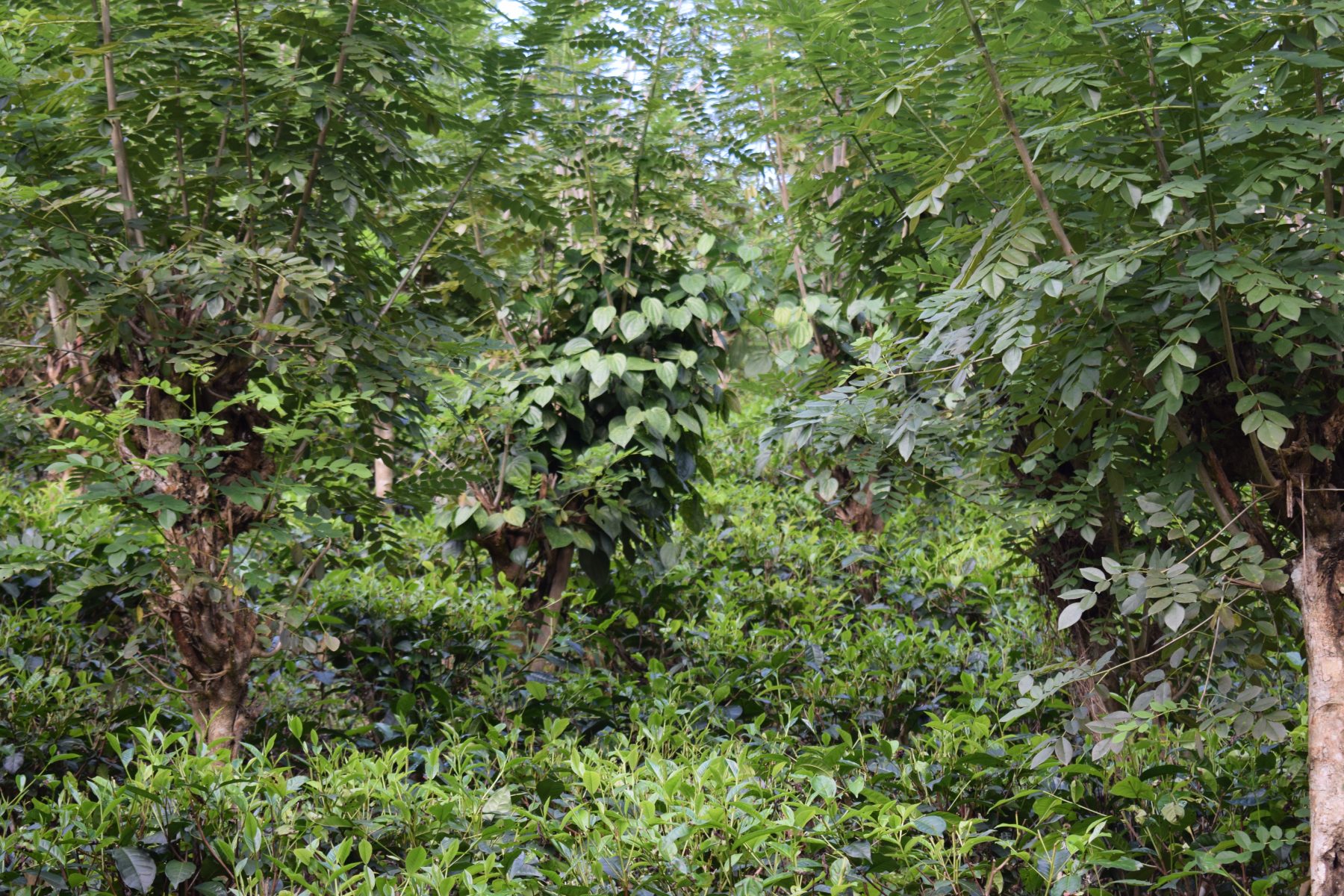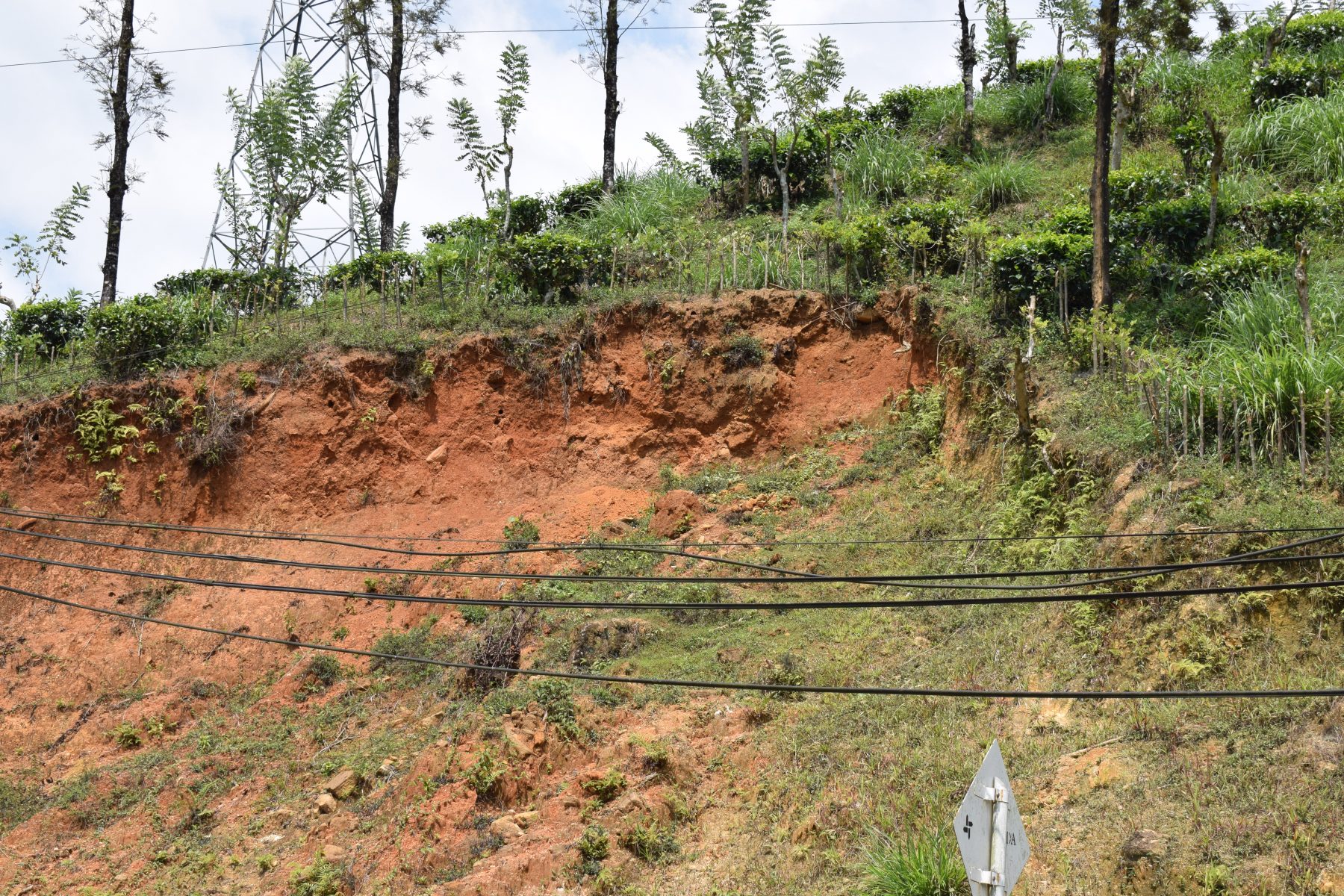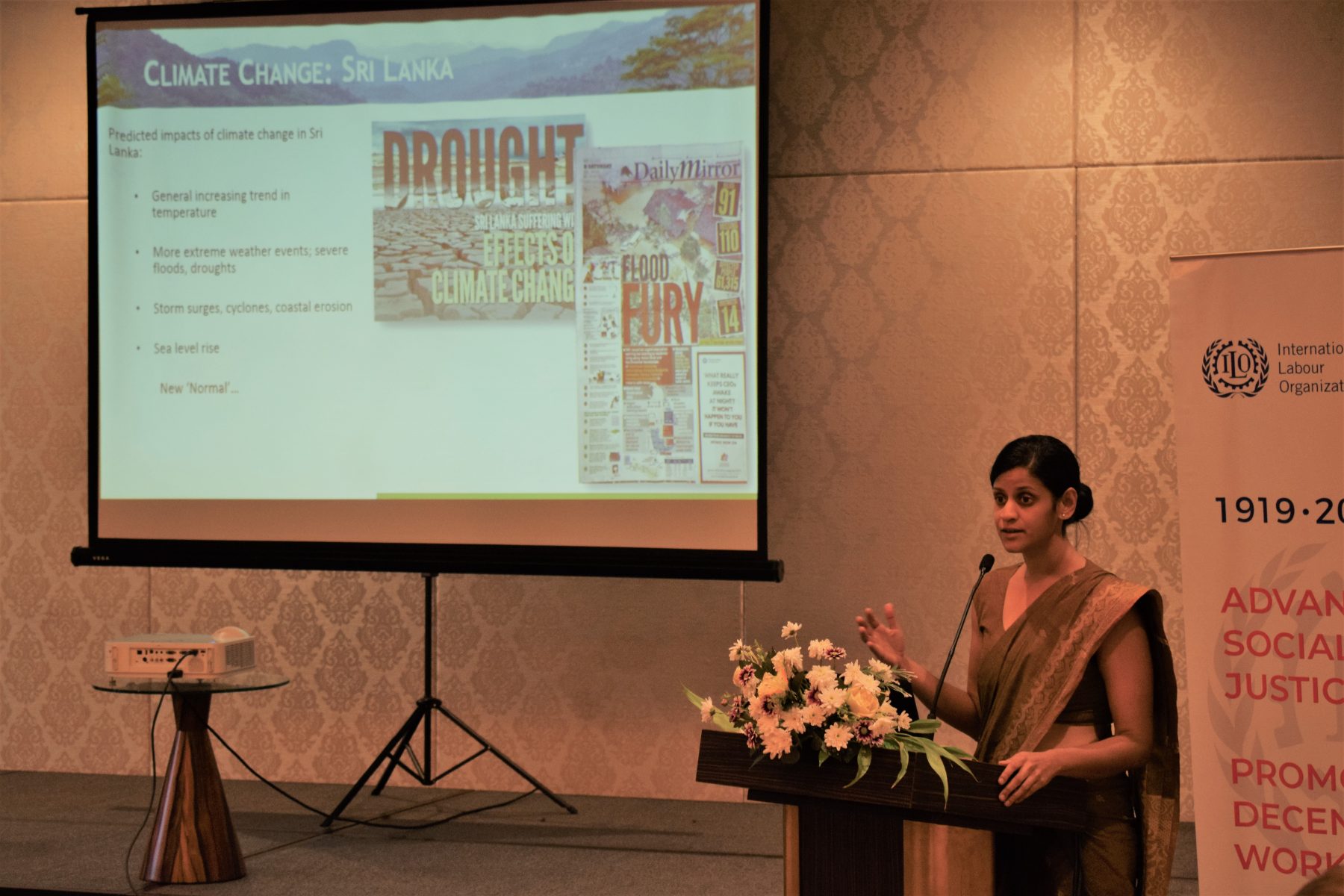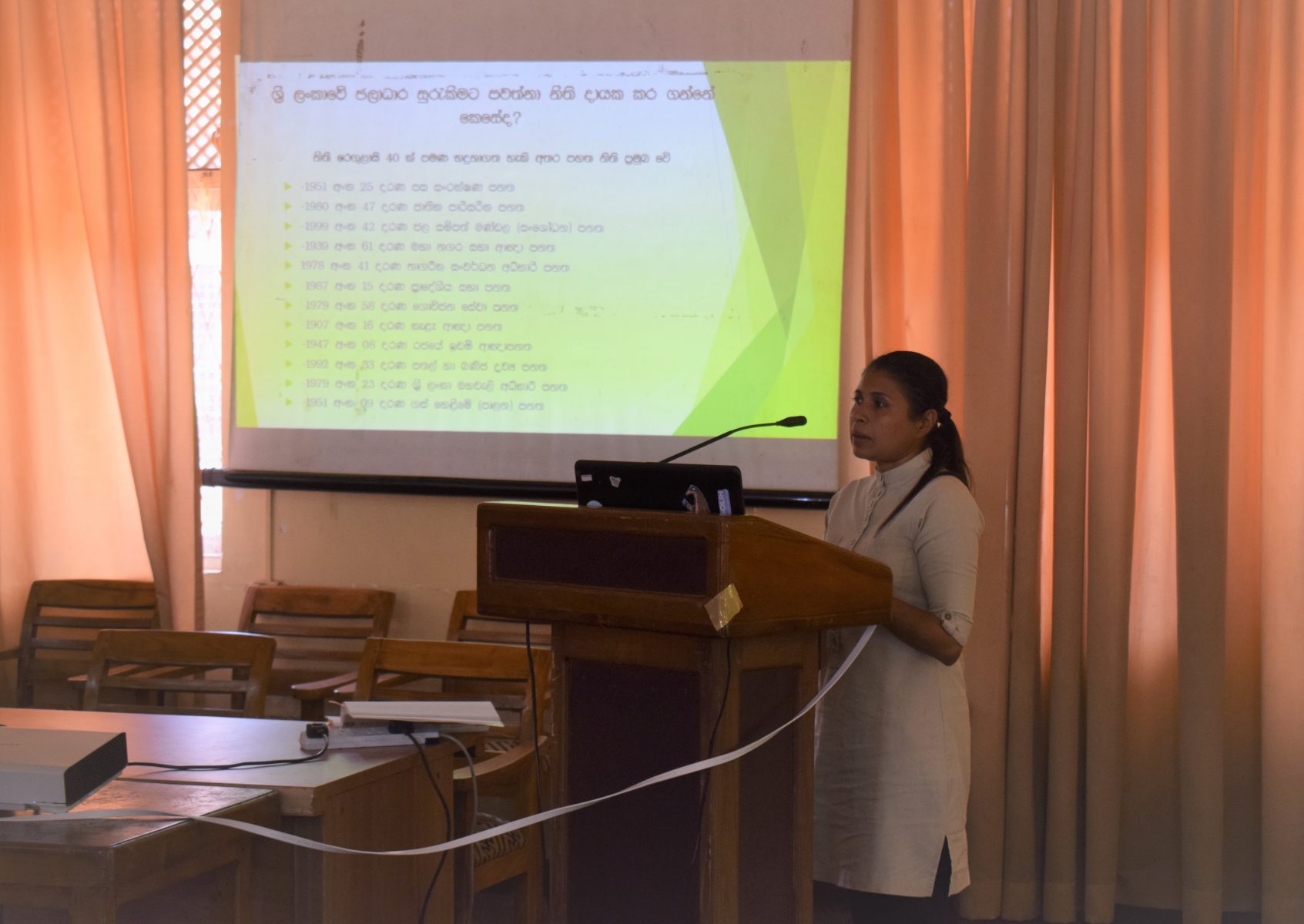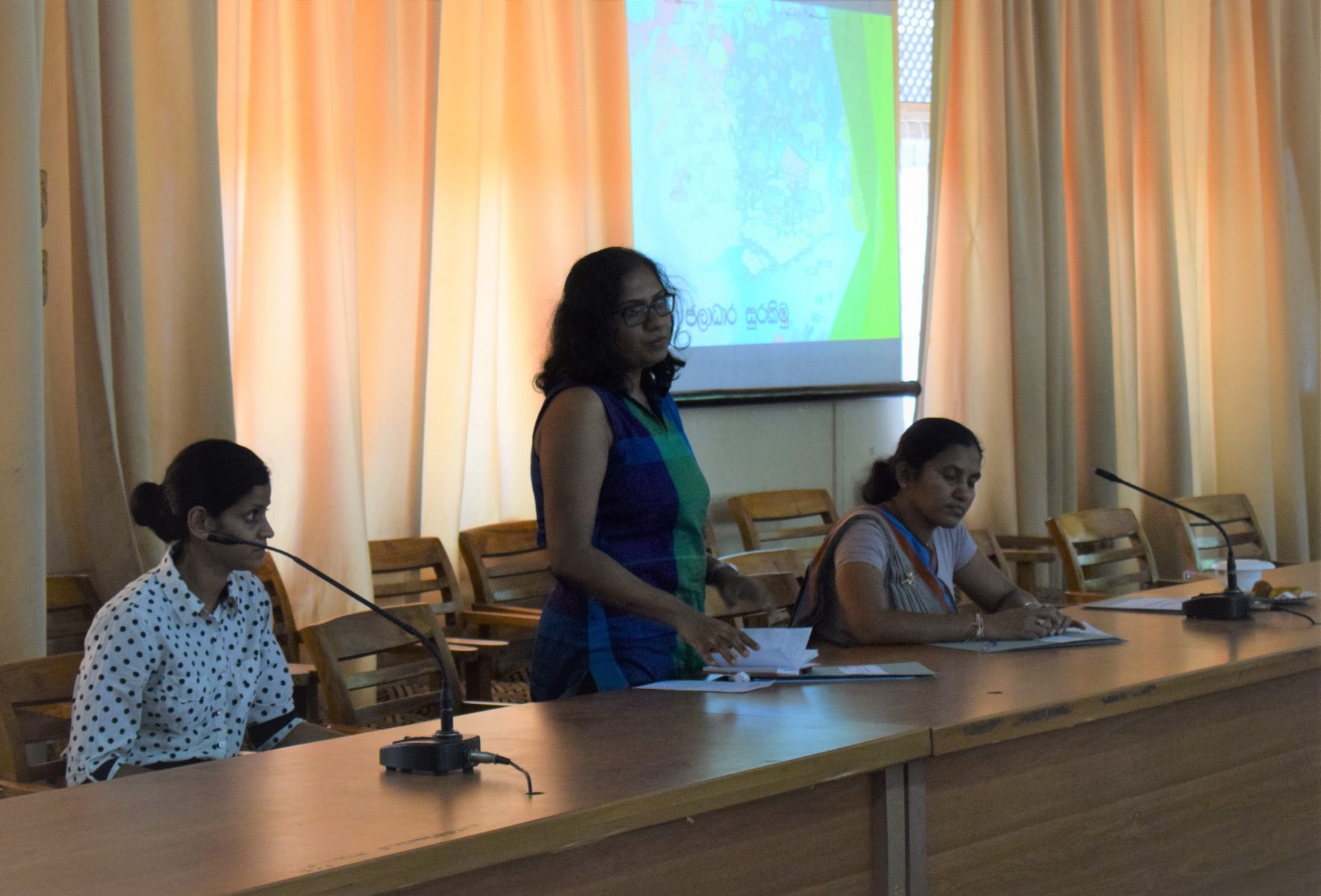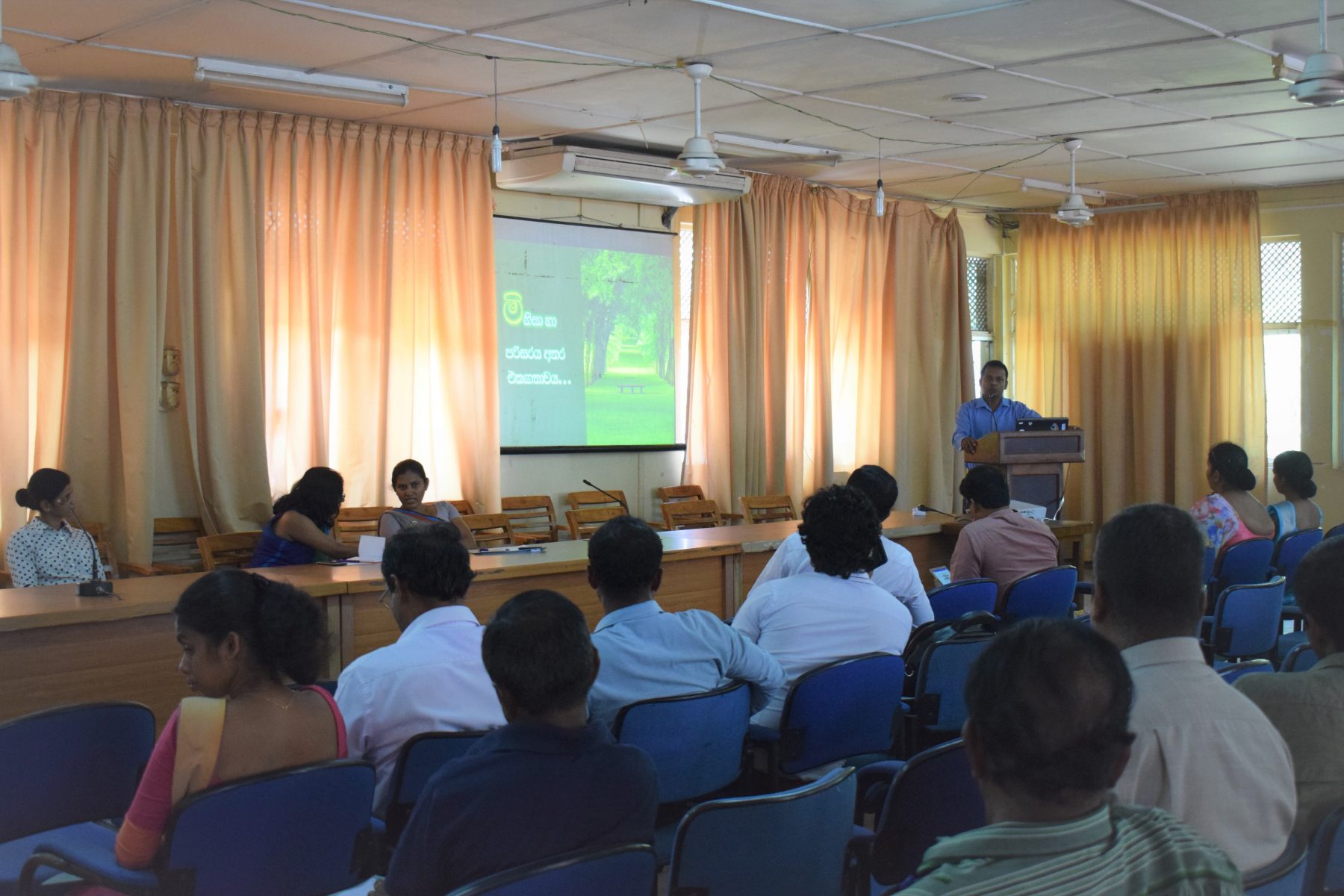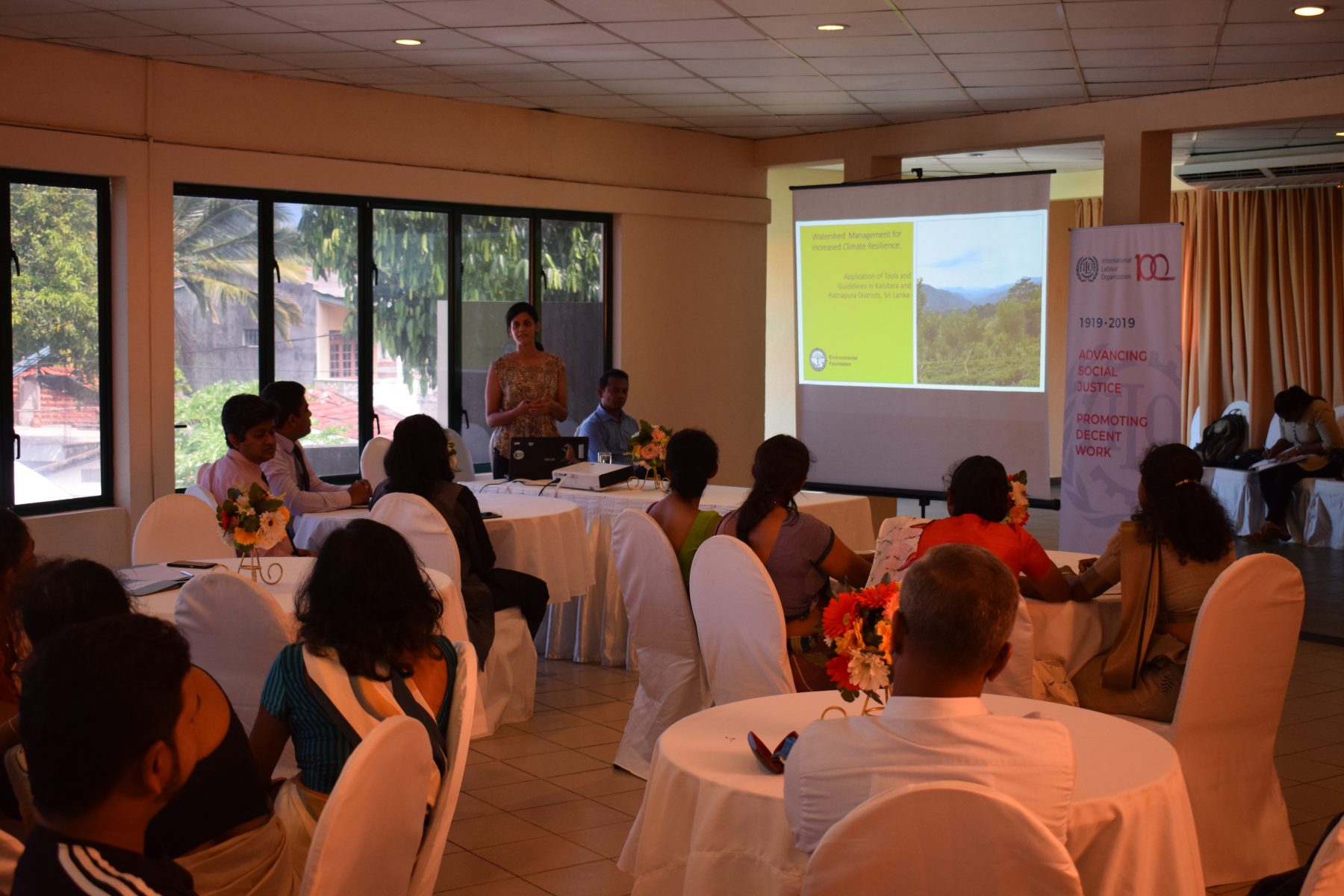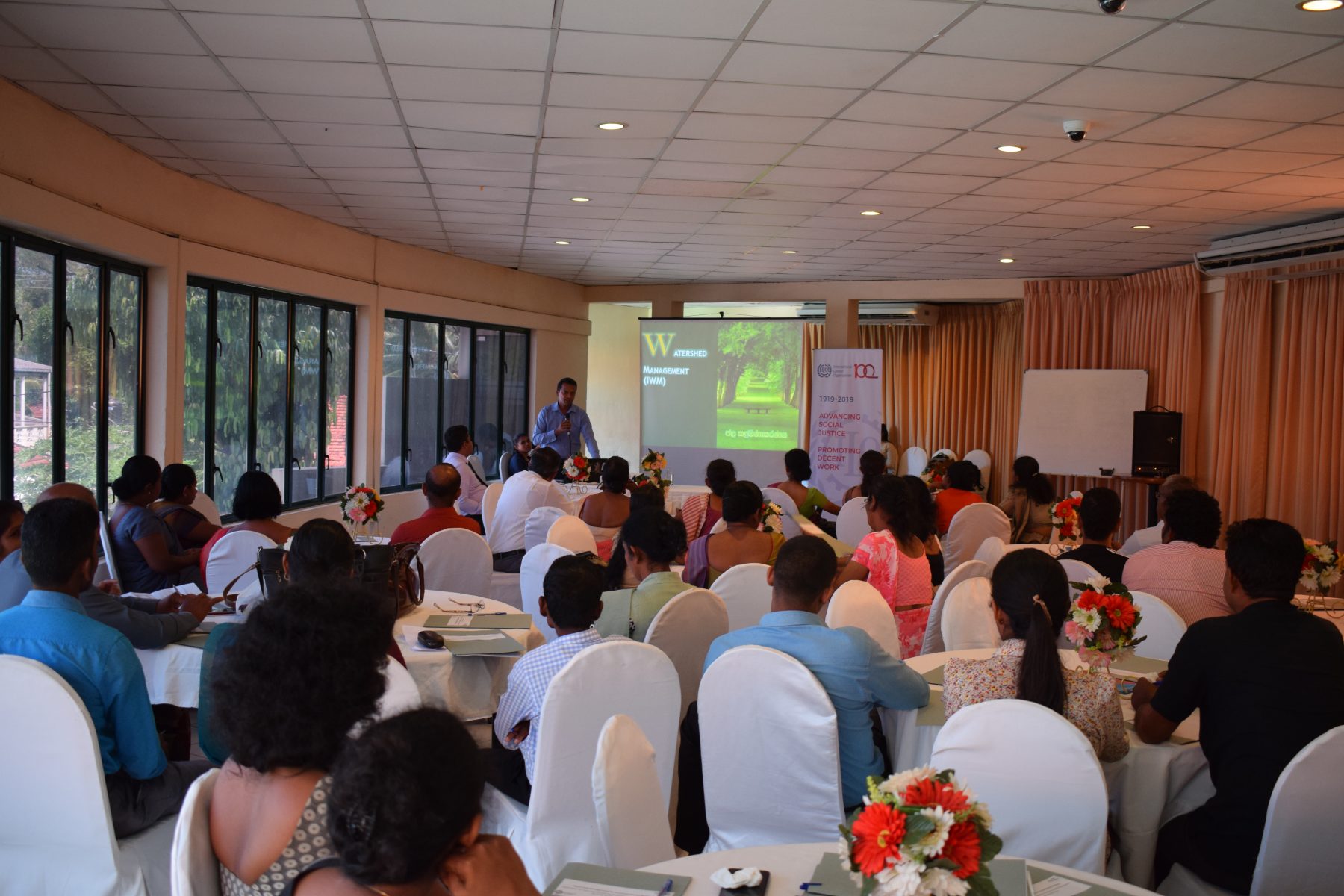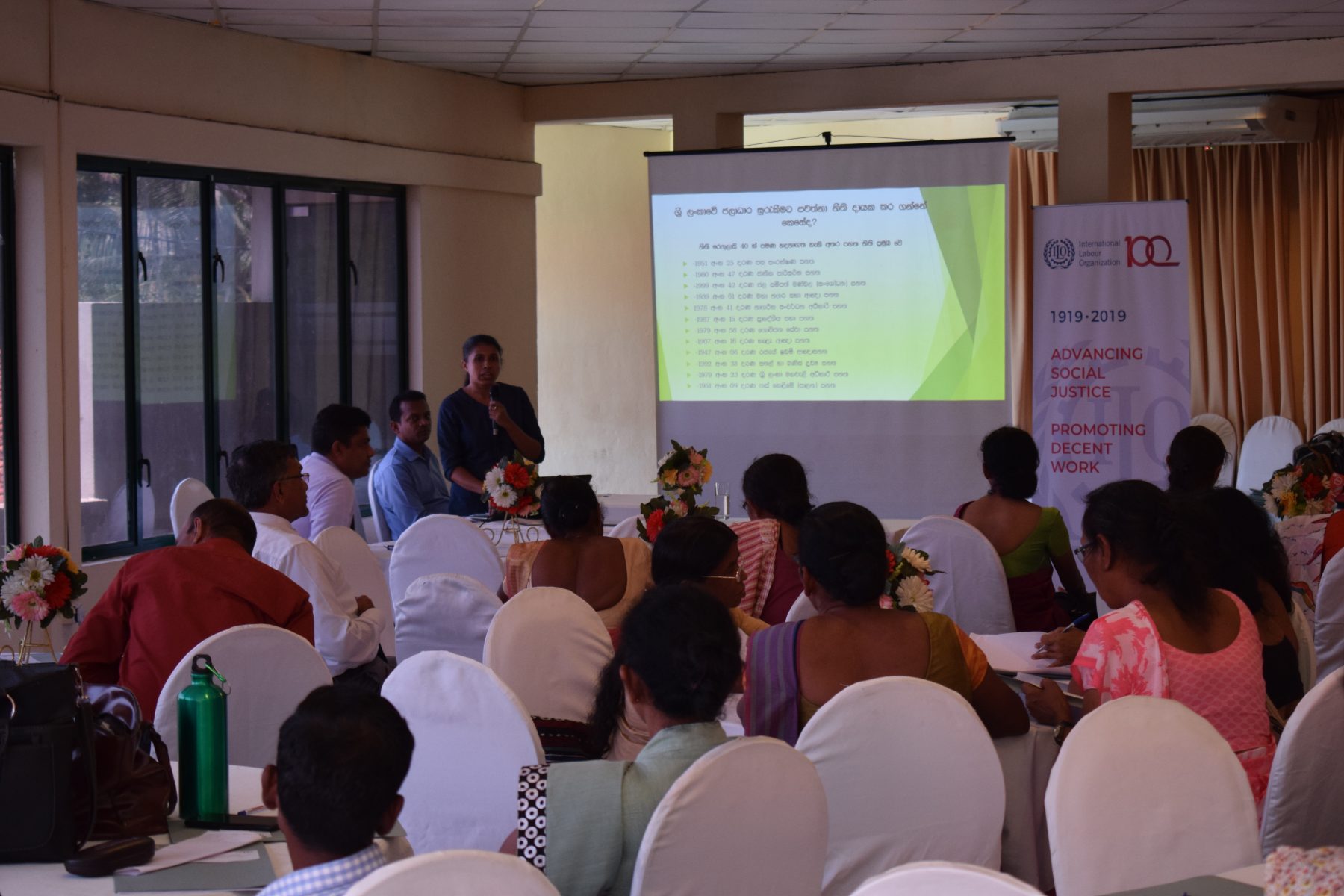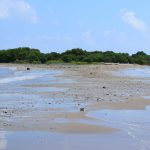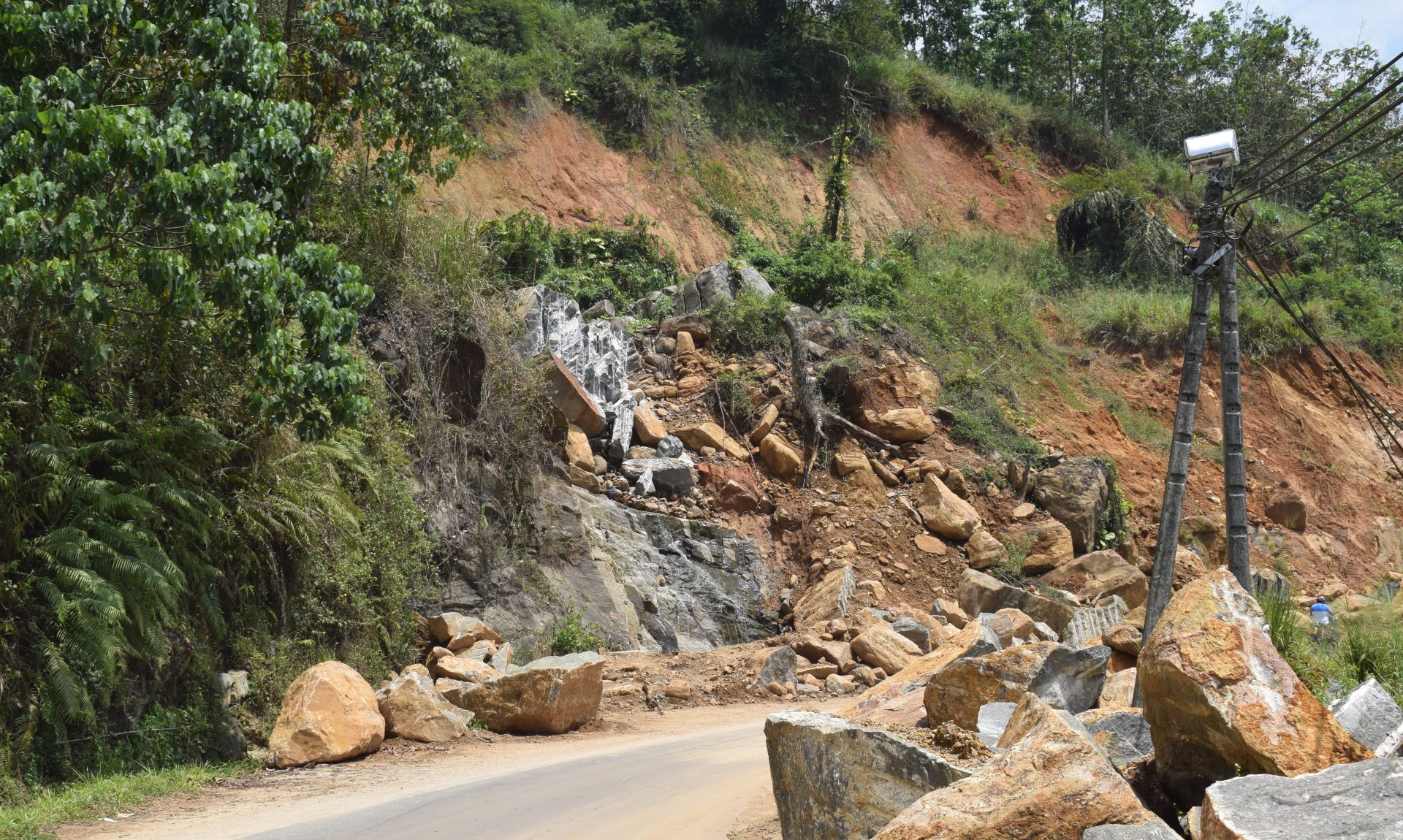
Project period – August 2018- March 2019
Parties involved – Funded by ILO, working with IUCN (Sri Lanka)
Sri Lanka is increasingly experiencing impacts of disasters related to climate change and the magnitude of these impacts are amplified by haphazard human development activities. High impact disaster events have been occurring frequently since 2011 which on average affect more than 1 million people annually (Ministry of Disaster Management). The most recent large scale flooding event occurred in 2017, when 600 mm of rainfall intercepted within two consecutive days in May causing flash floods and landslides in 15 districts. The highest numbers of deaths of 86 and 70, were recorded from Ratnapura and Kalutara districts, respectively.
With the financial aid from the International Labour Organisation (ILO), EFL together with the International Union for Conservation of Nature (IUCN), has compiled a document titled “Tools and Guidelines for Watershed Management in South-western region of Sri Lanka for increased climate resilience, with a special focus on tea grown areas”, which provide guidance and recommendations to accommodate existing land use, planning of land conversions and sustainable cultivation methods in tea grown areas to increase resilience to climate change impacts.
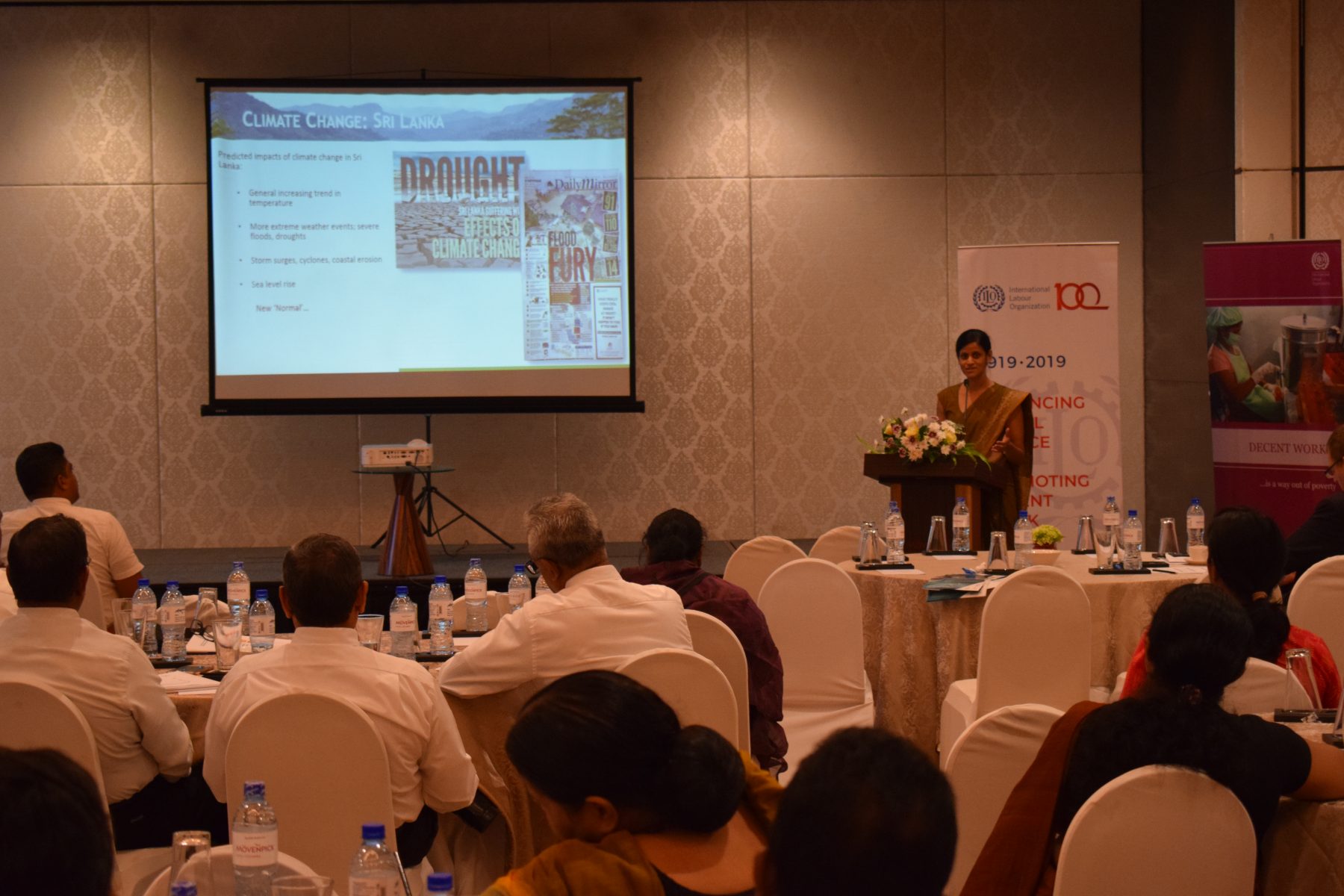
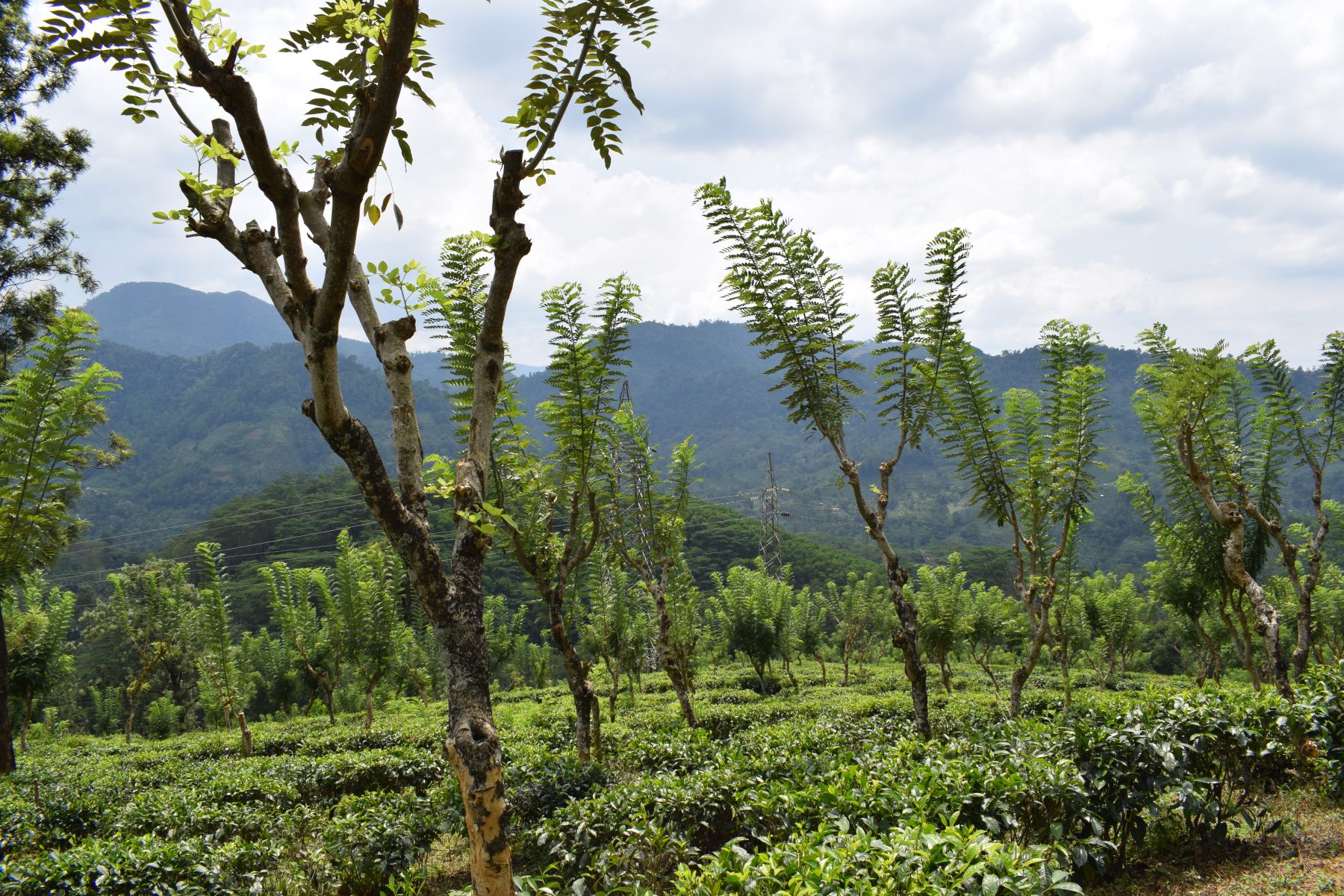
This publication consists of four chapters. The first chapter provides a brief introduction to the project. It describes the background of the project, key terminologies used and the benefits of applying watershed management practices. Chapter two describes how to identify the vulnerable areas for prioritisation and implementation of watershed management practices. The third chapter describes issues within of Rathnapura and Kalutara districts in the Kalu Ganga basin and the use of several tools to create resilience among the communities to mitigate natural disasters occurring in the area. The last chapter provides an insight to the legal framework which can be used as a tool in watershed management. The final document will be in both Sinhala and Tamil translations.
The Project concluded on March, 2019.
Project progress
November 2018- EFL conducts a site visit to the tea grown areas in Rathnapura and Kalutara districts to validate the information obtained through the data analysis.
1 March 2019- EFL presented their findings at the National Workshop of the Project on Building Climate Resilience for Sustainable Jobs and Rural Economic Growth, organised by ILO.
11 March 2019- The first capacity building workshop was held at Rathnapura District Secretariat office for Rathnapura district divisional level government officers and stakeholders in the tea plantation sector.
18 March 2019- The second capacity building workshop was held in Kalutara for its district divisional level government officers and stakeholders in the tea plantation sector.

